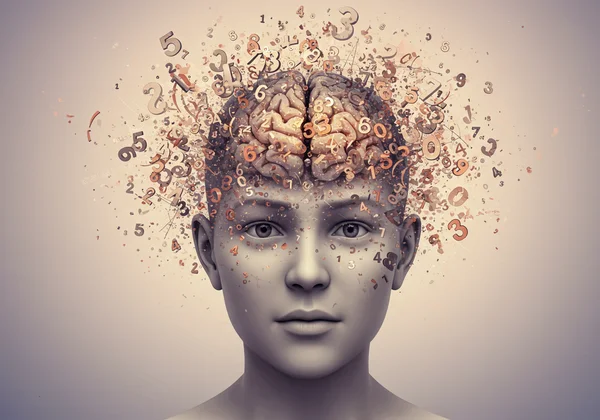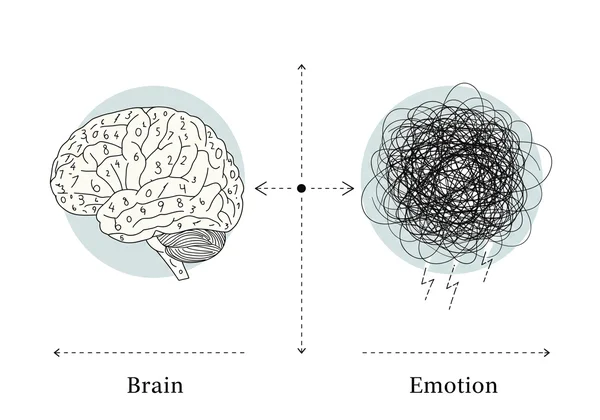Dyscalculia vs. Math Anxiety: Understand the Differences & Consider a Dyscalculia Test
July 13, 2025 | By Aisha Bennett
Are you or your child struggling with numbers? It's easy to confuse a genuine learning difference like dyscalculia vs math anxiety, but understanding the true root of the challenge is crucial for effective support. Many people wonder, Do I have dyscalculia or am I just bad at math? In this guide, we'll clarify the distinctions between these two conditions, helping you find the right path forward. For a valuable first step in understanding your or your child's mathematical learning profile, consider taking a free screening test.
What is Dyscalculia?
Dyscalculia is a specific learning disorder that affects a person's ability to understand and process numerical information. It's often described as "math dyslexia" because, much like dyslexia impacts reading, dyscalculia impacts mathematical skills. This isn't about being "bad at math" due to lack of effort or poor teaching; it's a neurological condition that makes core math concepts genuinely difficult to grasp. People with dyscalculia often struggle with foundational numerical concepts.

Common Signs of Dyscalculia in Children
Spotting signs of dyscalculia in children early can significantly help parents and educators provide effective support. Children with dyscalculia may have trouble understanding number values, counting accurately, or performing simple arithmetic. They might struggle to recall basic math facts or understand mathematical symbols. Additionally, difficulties with concepts like time, money, and spatial reasoning are often observed. These challenges persist despite adequate instruction and opportunities to learn.
How Dyscalculia Manifests in Adults
Dyscalculia doesn't disappear in adulthood, though its manifestations may change. Many adults with signs of dyscalculia in adults have learned coping mechanisms but still face significant challenges. They might struggle with budgeting, telling time, following recipes, or understanding statistics at work. Tasks involving mental math or estimating quantities can be particularly stressful. Often, adults have felt like they were "just bad at math" their whole lives, unaware there might be an underlying reason. Discovering this condition can bring immense relief and a path to better understanding.
Understanding Math Anxiety
In contrast to dyscalculia, math anxiety is an emotional response to mathematics. It's a feeling of tension, apprehension, or fear that interferes with math performance. While people with math anxiety might genuinely struggle with math, their difficulties stem from emotional distress rather than an innate inability to comprehend numbers. This anxiety can be debilitating, creating a vicious cycle where fear leads to poor performance, which then reinforces the fear.

What Triggers Math Anxiety?
Several factors can contribute to math anxiety. Negative past experiences, such as public humiliation in math class or pressure from parents, are common culprits. The belief that one is "not a math person" can also foster significant anxiety. Time pressure during tests, fear of making mistakes, or simply observing others' struggles can also elevate anxiety levels. These external and internal factors create a cycle of avoidance and underperformance.
Recognizing the Symptoms of Math Anxiety
Math anxiety symptoms often include physical reactions like a racing heart, sweaty palms, or a "blank mind" when faced with math problems. Emotionally, individuals may experience panic, dread, or a sense of helplessness. These symptoms can appear even when the person knows the correct answer, effectively blocking their ability to recall or apply their knowledge. Unlike dyscalculia, where the core understanding is missing, math anxiety blocks access to existing understanding.
Key Differences: Dyscalculia vs. Math Anxiety
Understanding the key difference between dyscalculia and math anxiety is crucial for providing effective support. While both can lead to poor math performance and similar outward struggles, their origins are fundamentally different. One is a neurological processing challenge, while the other is an emotional response.
The Core Distinction: Brain vs. Emotion
The core distinction lies in their origins: dyscalculia is rooted in the neurological basis of how the brain processes numbers and math concepts. It's a cognitive deficit in the "number sense." Math anxiety, on the other hand, is primarily an emotional response. It's a learned fear or apprehension that interferes with a person's ability to perform, despite their potential underlying mathematical competence. Someone with dyscalculia struggles even with basic number concepts in a relaxed setting, while someone with math anxiety might perform well under no pressure but falter under scrutiny or stress.

Impact on Learning and Daily Life
Both conditions can lead to significant learning difficulties and impact daily life challenges, but in different ways. Dyscalculia affects the fundamental ability to learn and apply mathematical principles, often leading to consistent errors in counting, calculation, and numerical reasoning. This can impact careers requiring numerical literacy or simple daily tasks like managing finances. Math anxiety, conversely, might manifest as inconsistent performance. A student might ace homework but freeze on a test. An adult might avoid situations requiring math, regardless of their actual mathematical aptitude. The impact of dyscalculia is typically more pervasive and consistent across all mathematical tasks.
Getting the Right Support and Next Steps
Once you understand the distinctions, getting the right support becomes clearer. Whether it's dyscalculia or math anxiety, there are effective strategies to help.
How to Determine If It's Dyscalculia or Anxiety
The first step in knowing how to help is determining the root cause. This typically involves careful observation of symptoms and, ideally, a professional assessment. While only a qualified professional can diagnose dyscalculia, online screening tools can provide valuable initial insights. A comprehensive dyscalculia assessment tool can help differentiate between a true learning difference and anxiety-driven performance issues. Our platform offers a free dyscalculia test designed by educational psychologists to help you identify potential math learning differences. This online dyscalculia test for adults and children alike serves as a helpful preliminary step.
Strategies for Managing Dyscalculia Challenges
For individuals facing dyscalculia support strategies, the focus is often on multi-sensory approaches, visual aids, and breaking down concepts into smaller, manageable steps. Specialized teaching methods that focus on number sense development rather than rote memorization can be highly effective. Tools like calculators, number lines, and real-world examples can provide crucial support. Patience and a supportive environment are key to building confidence and finding alternative ways to approach mathematical tasks. Exploring our resources can provide more tailored advice.
Coping Mechanisms for Math Anxiety
If math anxiety is the primary issue, strategies will focus on reducing emotional distress. Techniques like mindfulness, deep breathing exercises, and positive self-talk can help manage the physical symptoms of anxiety. Breaking down math problems into smaller steps, celebrating small successes, and reframing mistakes as learning opportunities can also be beneficial. Seeking a supportive tutor or therapist who understands anxiety can provide valuable guidance in developing effective math anxiety coping mechanisms.
Your Path to Understanding Math Challenges
Understanding the difference between dyscalculia and math anxiety can be truly empowering. It turns a vague feeling of 'being bad at math' into a clear path for targeted support and growth. Remember, neither condition is a sign of low intelligence; they are simply different ways brains process information or respond to stress.
If you suspect you or someone you care about might be struggling, don't hesitate to seek clarity. Our free, expert-designed dyscalculia screening offers a confidential and comprehensive way to gain initial insights into potential math learning differences. Take the first step towards understanding and support today, and make exploration easier, make life richer.
Frequently Asked Questions About Math Difficulties
How do you test for dyscalculia?
While a formal diagnosis requires assessment by an educational psychologist or other qualified professional, you can begin with an online dyscalculia screening tool. Our platform offers a free, expert-designed online dyscalculia test that helps identify potential signs of this learning difference in both children (7+) and adults. It provides an immediate basic result and an optional AI-generated personalized report for deeper insights. Start your screening to understand more.
Do I have dyscalculia or am I just bad at math?
This is a very common question, and the answer lies in the nature of your struggles. If you consistently struggle with fundamental number concepts, basic arithmetic, and understanding quantities even in non-stressful situations, it might indicate dyscalculia. If your difficulties primarily stem from nervousness, fear of failure, or a "blanking out" under pressure, it's more likely math anxiety. Our free dyscalculia test can help you differentiate and provide preliminary insights.
What are the signs of dyscalculia in adults?
Signs of dyscalculia in adults can include difficulty managing finances, remembering phone numbers, understanding concepts of time, trouble with mental math, or struggling to estimate distances. They might avoid situations requiring numerical skills and feel persistent anxiety about math. If these sound familiar, taking an online dyscalculia test might provide valuable insight into your experiences.
Can math anxiety be cured?
While math anxiety might not be "cured" in the sense of a medical illness, it can be significantly managed and reduced. Through coping strategies like relaxation techniques, re-framing negative thoughts, and building math skills gradually in a supportive environment, individuals can overcome their fears and improve their performance. Addressing underlying issues with a professional can also be highly effective.